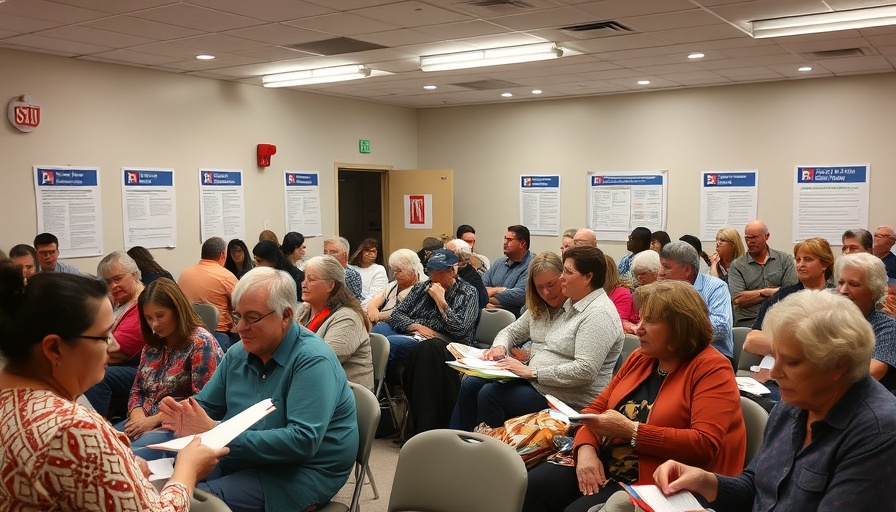
Understanding the Texas Property Tax Cap: What You Need to Know
Recently, Texas senators approved a monumental plan aimed at capping property tax increases across cities and counties, marking a significant move in local governance that could affect homeowners and local budgets statewide. The approval reflects the growing concern over rising property tax burdens that have been weighing heavily on residents. What does this mean for Texas taxpayers and communities as a whole?
The Implications of Capping Property Tax Increases
With the new cap in place, cities and counties will have a limit on how much they can increase property taxes annually, which aims to provide financial relief to homeowners. This legislation is expected to make homeownership more affordable, particularly for younger families and individuals entering the housing market. It prioritizes taxpayers' interests, especially in areas where property values have surged due to economic development.
Context and Historical Background
Historically, property taxes in Texas have been a contentious issue, especially because the state has no income tax, placing a heavier burden on property taxes to fund public services. In recent years, the rising cost of living and increased valuations has prompted local governments to raise taxes to meet budgetary needs. Yet, this new cap could provide a necessary balance between revenue generation and taxpayer relief.
Local vs. Global Perspectives on Property Tax
While Texas navigates this property tax cap, other states are witnessing varying approaches. States like California have implemented Proposition 13, capping property taxes but often creating inequities in tax assessment, leading to a disparity in how taxes are levied on long-term property owners versus new buyers. In contrast, Texas's plan aims for a more equitable system that prevents steep increases, fostering a stable housing market.
Community Connections: A Matter of Local Importance
The community’s response to this new law has been largely positive, with many residents fearing sudden increases in tax assessments. Public forums have shown that constituents appreciate the cap as it potentially prevents financial strain, especially in diverse communities where income levels vary significantly. The cap could also help foster community engagement and discussions about local governance and fiscal responsibility.
Actionable Insights: What Residents Can Do
As residents of Austin and Texas at large navigate the new property tax landscape, it’s beneficial for homeowners and renters alike to stay informed. Engage in local government meetings, reach out to your representatives, and advocate for transparency in budget discussions to ensure that services are funded responsibly without placing undue burdens on taxpayers. Understanding your rights as a property owner can empower you to voice concerns and contribute to community dialogue.
Future Predictions: What Lies Ahead for Local Governance?
The passage of this property tax cap could set a precedent for future legislation aimed at taxpayer protections. As the economy evolves and population growth strains urban areas like Austin, we can expect more discussions surrounding property taxes and their implications on public funding. Stakeholders will need to engage responsibly to balance fiscal stability with the needs of citizens.
Conclusion: Why Staying Informed Matters
This new property tax cap has great implications for Texans as they navigate homeownership and local governance. It's crucial to stay informed and engaged with these developments as they shape the financial landscape of our communities. By understanding the ramifications of such legislation, residents can more effectively advocate for their interests and ensure their voices are heard.
Stay connected with what's happening in Austin by following local news coverage closely, participating in community forums, and discussing property tax matters with your neighbors. Engaging with these issues helps foster a better understanding of the local landscape and promotes civic engagement.
 Add Element
Add Element  Add Row
Add Row 



Write A Comment